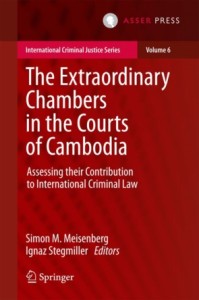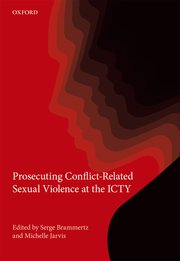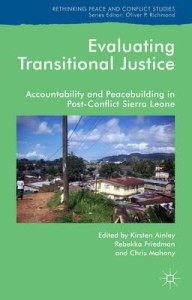 The Extraordinary Chambers in the Courts of Cambodia - Assessing their Contribution to International Criminal Law
The Extraordinary Chambers in the Courts of Cambodia - Assessing their Contribution to International Criminal Law
Edited by Simon M. Meisenberg and Ignaz Stegmiller
The ECCC were established in 2006 to bring to trial senior leaders and those most responsible for serious crimes committed under the Khmer Rouge regime. Established by domestic law following an agreement in 2003 between the Kingdom of Cambodia and the UN, the ECCC’s hybrid features provide a unique approach of accountability for mass atrocities.
The book entails an analysis of the work and jurisprudence of the ECCC, providing a detailed assessment of their legacies and contribution to international criminal law. The collection, providing a foreword by ICC Judge Chung and containing twenty chapters from leading scholars and practitioners with inside knowledge of the ECCC, discuss the most pressing topics and its implications for international criminal law. These include the establishment of the ECCC, subject matter crimes, joint criminal enterprise and procedural aspects, including questions regarding the trying of frail accused persons and the admission of torture statements into evidence.
This book is the first comprehensive study on the work and functioning of the Extraordinary Chambers in the Courts of Cambodia (ECCC). It highlights that the ECCC has delivered a rich jurisprudence that deserves scrutiny and analysis in order to explore its contribution to international criminal justice. General criticism towards the ECCC and many aspect of international criminal law may be superficial, missing a critical assessment of the law and practice of the Khmer Rouge Tribunal. The book therefore attempts to contribute to a better understanding of the challenges encountered not only by the ECCC, but by international criminal justice as a whole.
To order the book click here



